The much-beloved Brasserie Cantillon has a new long-term storage project where tens of thousands of bottles of lambic, Oude Gueuze, and other beers will be stored for up to thirty years. I had the great pleasure of visiting the “Bomb Shelter Beer Cellar” with Cantillon brewmaster Jean Van Roy on Thursday, April 24.
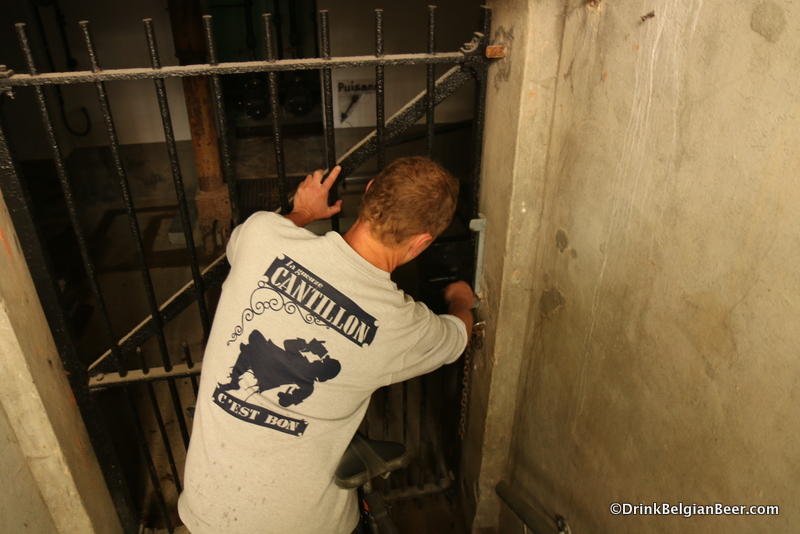
Jean told me, as we entered the cellar: “I had the idea to have an aging/maturation project like this when I visited the Pommery Champagne house in Reims a few years ago. They have great cellars full of many thousands of bottles of champagne, aging in beautiful conditions. I wanted to do something like that with Cantillon, but we don’t have the space at the brewery for such a project. So I thought to ask the city of Brussels if they wanted to collaborate on such a project, and they quickly agreed, as they liked the idea.”
To watch a short video of the above conversation, see here
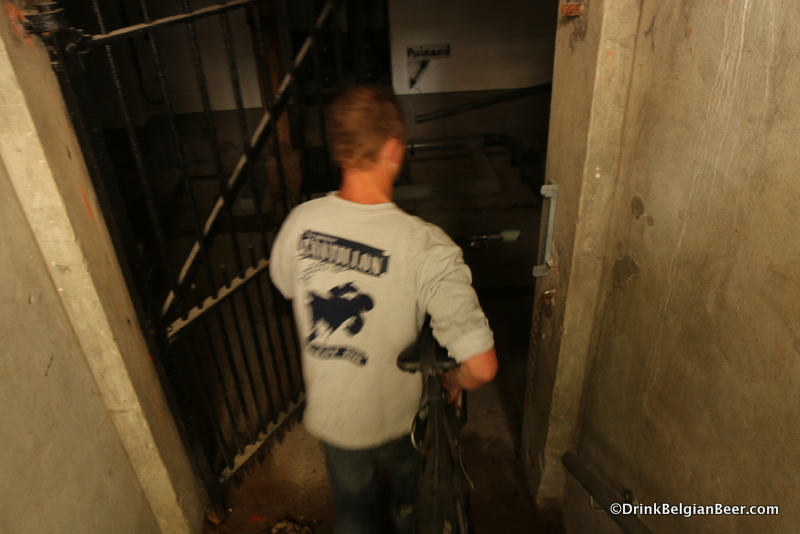
The mayor of Brussels, Freddy Thielemans, and two aldermen, Philippe Close and Christian Ceux, were then asked to find a space where Cantillon could age beer.
He continued: “We visited several locations, and settled on this one. It’s a fine location for a cellar, and we also have some family history associated with this area. My great grandfather, Paul Cantillon, who founded the brewery in 1900, married Marie Troch. Her father, René Troch, had either a beer storage space or maybe a brewery just in front of where this cellar stands now. Of course, those buildings are long gone now, but I have come back to a place where my great-great grandfather worked with beer. It makes this location even more special,” Jean remarked.
To see a video clip of Jean discussing this, see here
Apologies for the quality of the videos shown in this article. I don’t have an external light source for my camera, other than its photo flash. At the moment, at least. 🙂
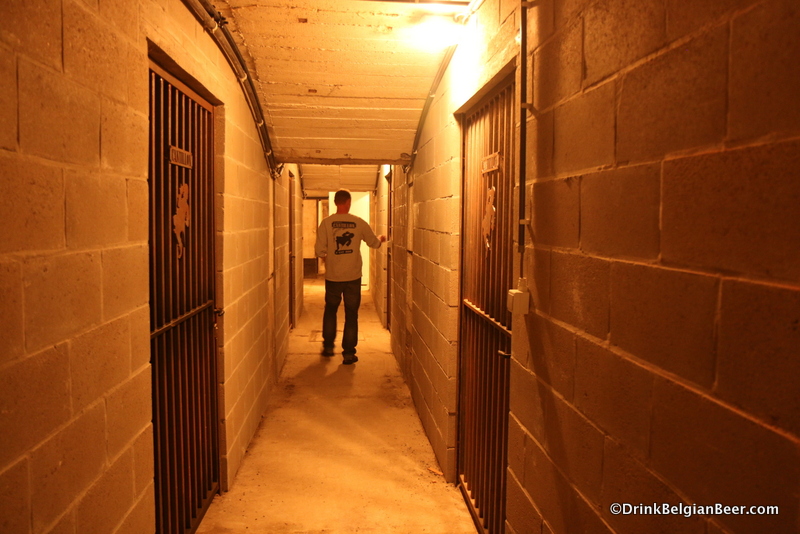
“We have a thirty year lease from the city, for free. It’s a very good situation,” Jean commented during the tour.
“This is the old basin of the Senne, transformed into cellars at the time of ‘vaulting’ and the diversion of the water away from Brussels. These cellars were then converted into bomb shelters. The place itself is already steeped in history and is ideal for the creation and preservation of our heritage,” said mayor Freddy Thielemans at a 2011 press conference.
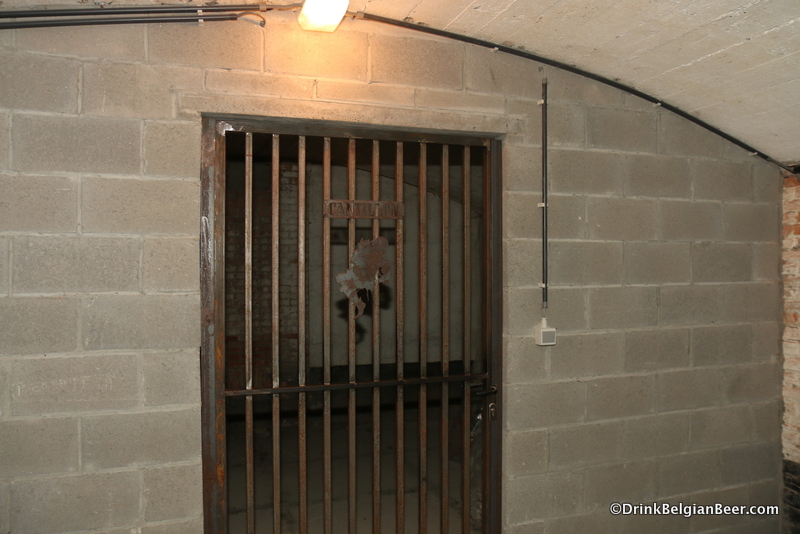
Just a bit of background from Jean: “Brussels used to be a sizeable port city, and now there still is an active port here. The river Senne (Note: Zenne in Dutch) used to flow through Brussels, but the water was diverted, and major boulevards built on top of it, in the late 19th and early 20th centuries. Here, I think the harbor that existed was linked with the Canal de Willebroek, and not directly with the Senne. But, these underground spaces became available for other uses when the water was diverted.”
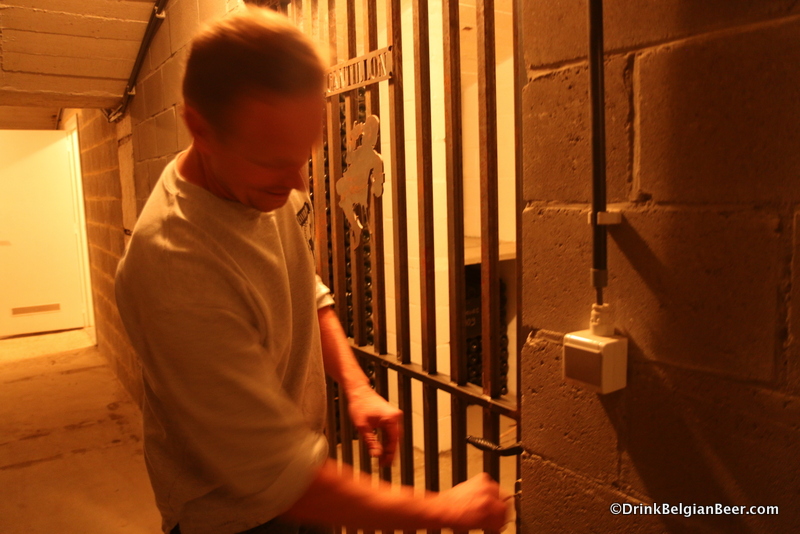
Just where is this “new” cellar, you ask? It’s an old bomb/war shelter, probably dating to the 1930’s, located on the Hooikaai, near the Yser metro stop and Leopold Tunnel in central Brussels. A park with a fountain is the locale above where the spontaneously fermented treasure rests below.
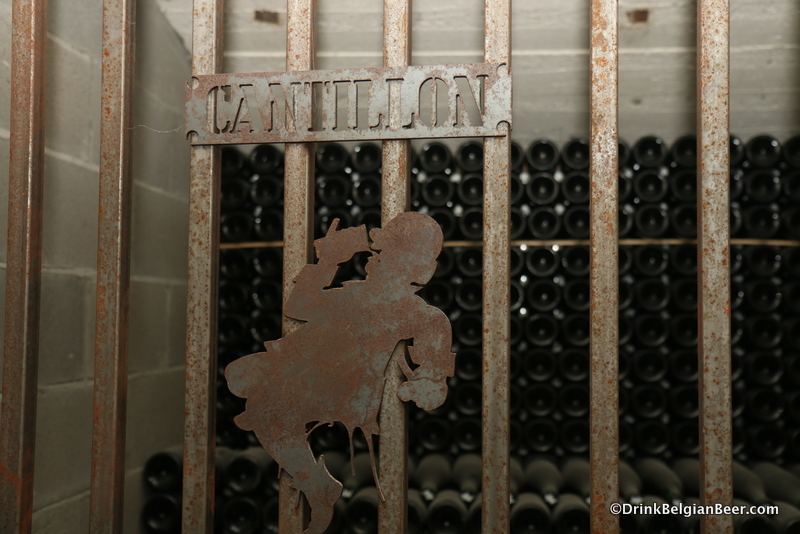
There are seven rooms, each with a locking iron gate with the Cantillon emblem anchored in them. “We had an iron-worker make these, and it didn’t cost too much more to add the symbol of our brewery to each. It was a nice added touch that we are proud of,” Jean stated, smiling.
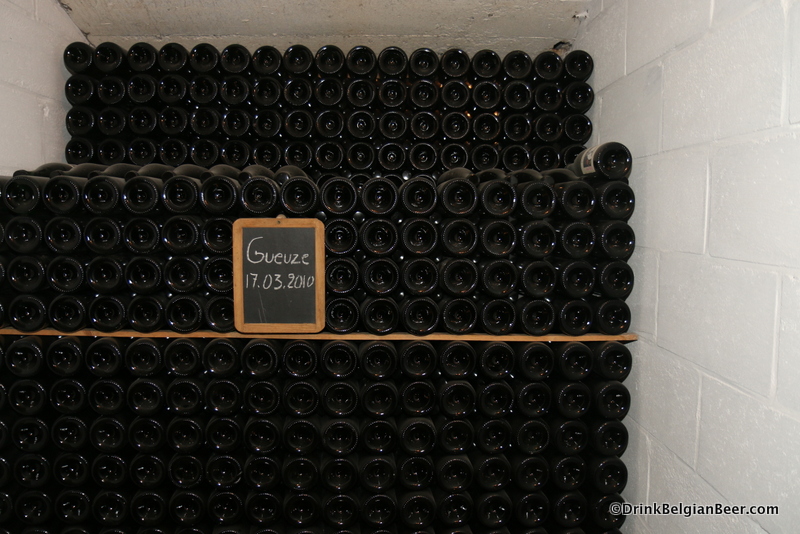
“Which beers will you age here?” I asked Jean. He then went into the details: “Primarily, this project is about lambic and gueuze, to see how it will age as a research project. At the moment, we have Bruocsella Grand Cru, Gueuze, and High Density Lambic here (Lambic de Haute Densité.)”
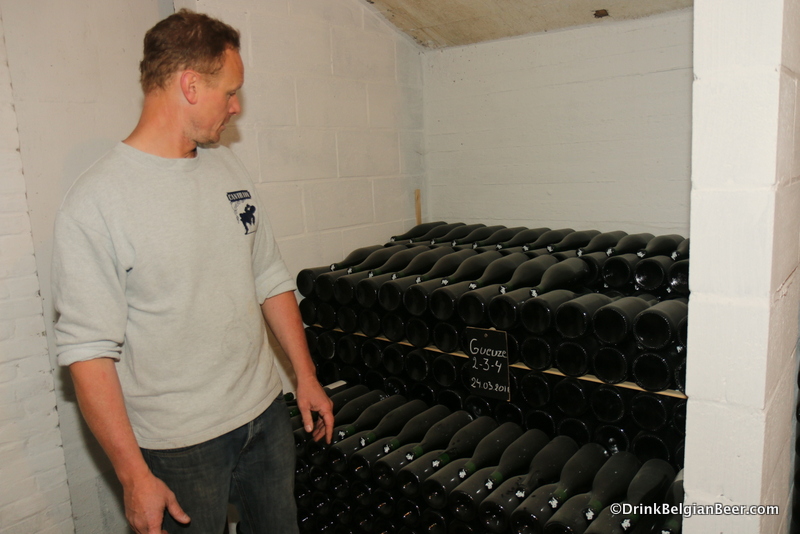
The gueuze is not just any old gueuze, though: “The average age of the gueuze we have here is 40 months. It is a blend of 2, 3, and 4 year old lambics. For our Classic blend, the average age is 20 to 24 months. So this Gueuze is twice as old than the Classic,” Jean told me.
Lambic de Haute Densité is a high-gravity, unblended lambic with almost 10% alcohol by volume.
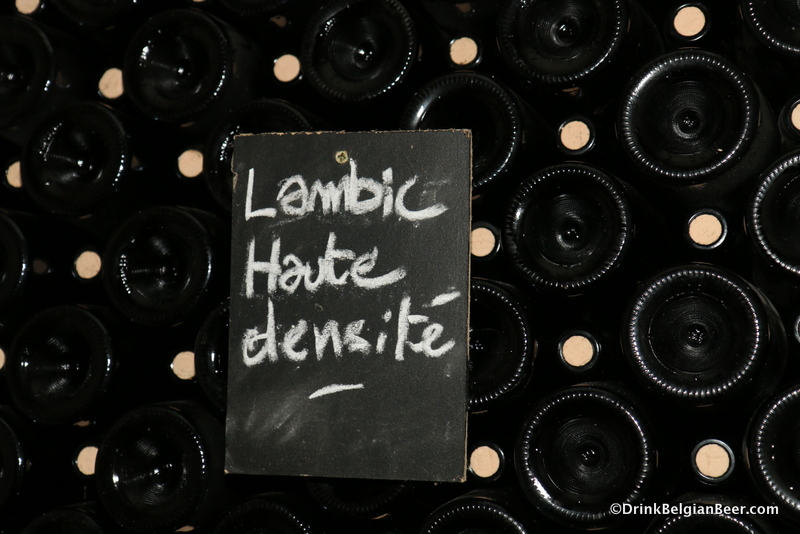
“There are over 10,000 bottles here, total, so far. I know we have 9,000 liters of lambic at the moment. Of course, we have different size bottles here: 75 cl, Magnums, 3 liter, and six liter bottles. We want to see how aging affects the lambics in these different size bottles,” Jean said.
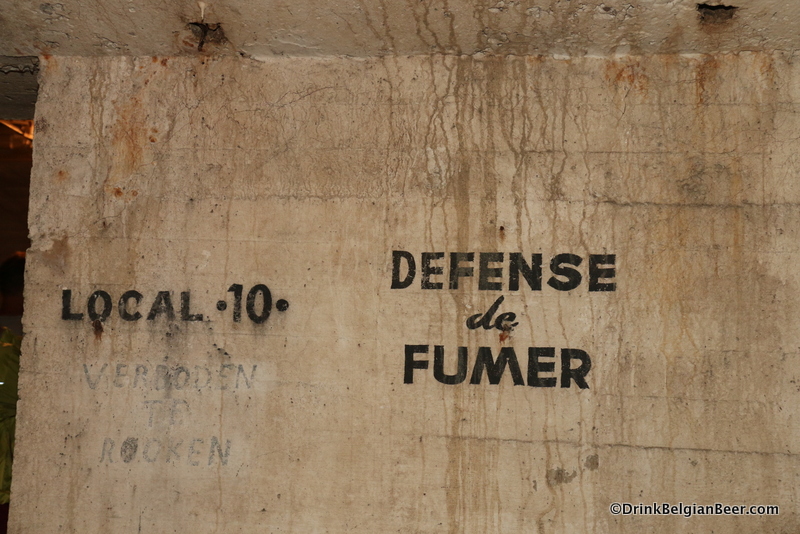
The idea is to add about 3,00 to 5,000 bottles per year to the cellar, so after twenty years, there will be 60,000 to 80,000 bottles there. Cellar Heaven, it is, and will be, for years to come. There are already 3,000 bottles of the 2008 Gueuze, and 3,000 more of the 2011.
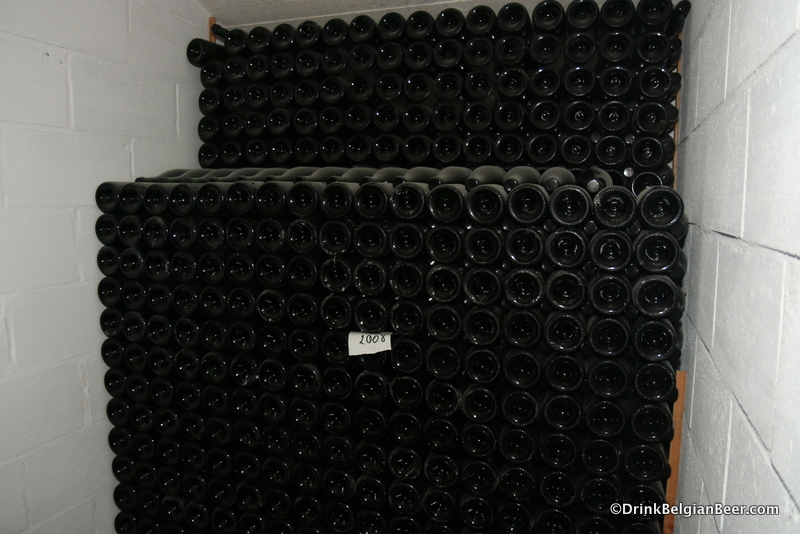
“I really began aging some beers the year my son Florian was born, in 1996,” Jean stated. “And I want to increase the amount we have aging by a lot, which we are doing in the new cellar.”
As to the storage conditions, Jean had this to say: “When we had the very hot summer in 2012, when it was up to 35 degrees Celsius (95 Fahrenheit) outside, it was 21 degrees (70 Fahrenheit) here in the cellar. In the heart of winter, it doesn’t get colder than 10 to 12 degrees down here (50 to 54 Fahrenheit) and right now it is maybe 14 or so,” (57 degrees Fahrenheit.)
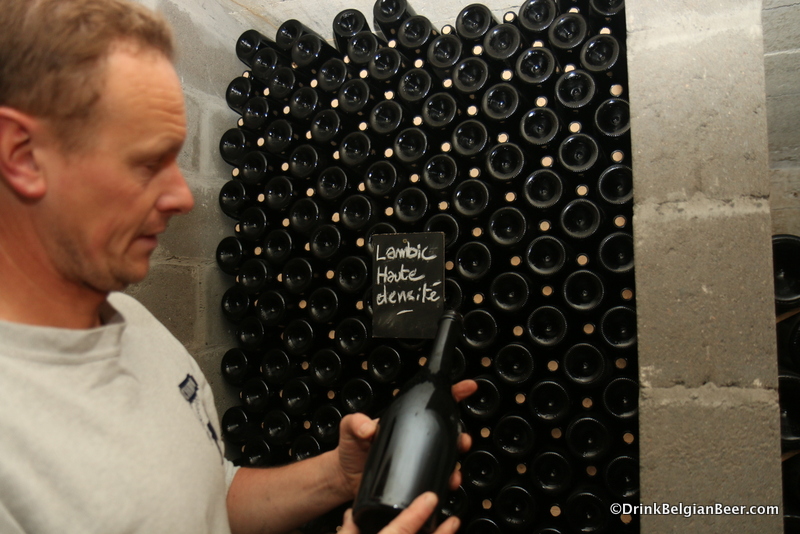
As to how this temperature difference might effect the maturation of the beer, Jean told me “I think this variation isn’t a problem, and doesn’t have any bad effect on aging lambic. In fact, in my opinion, it could play a role, in the right way, in the maturation of the beer.”
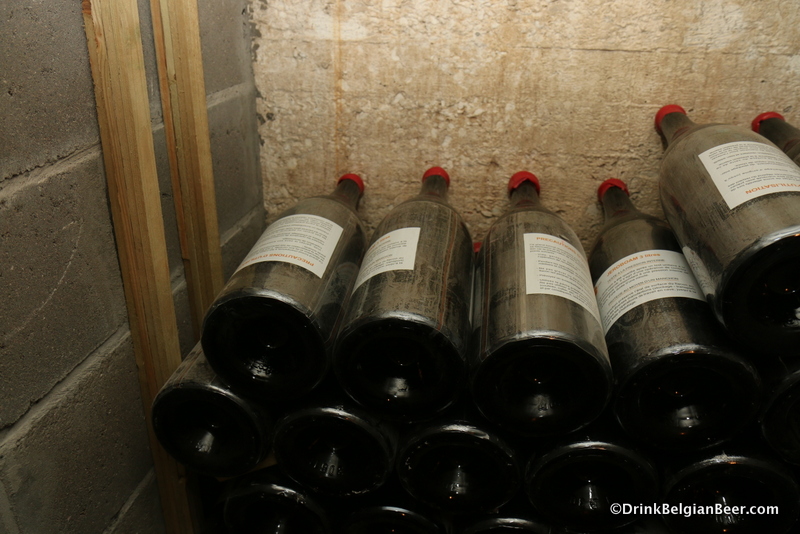
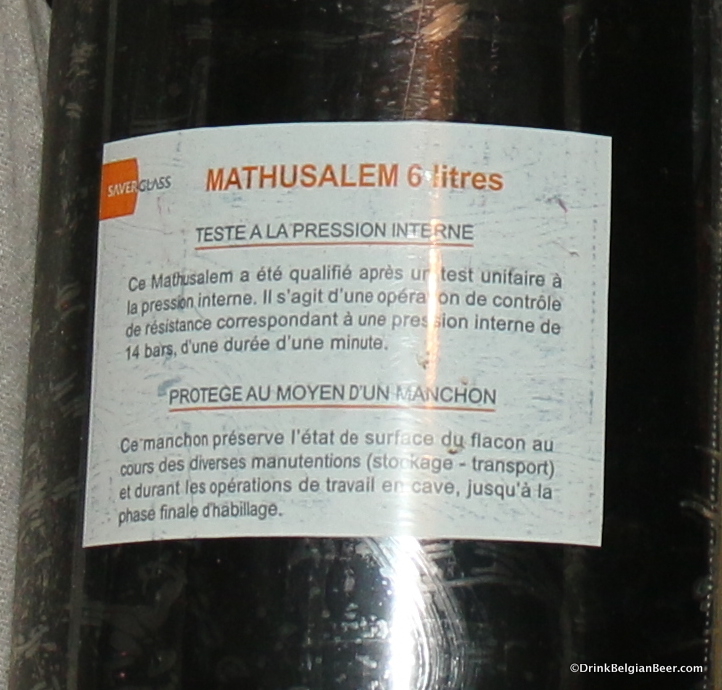
To see a short video clip of Jean holding a six liter bottle, see here
“We also would like to put some beers with a high-fruit concentration here, such as Lou Pepe Kriek. But we don’t have any here yet, as the last two cherry harvests were not very good in Belgium. We use North cherries (note: Noorderkrieken in Dutch) which are grown in Belgium. I hope that this year’s harvest will be better, as we have had warm weather even in March, and lots of sunshine so far this spring,” Jean told me, smiling.
“I’d want to have at least 500 to 1,000 bottles per year of the Lou Pepe Kriek, if we put any here. For that, I need at least 1,000 kilograms of cherries,” Jean commented. Fingers crossed that the cherry crop will be a big one in 2014!
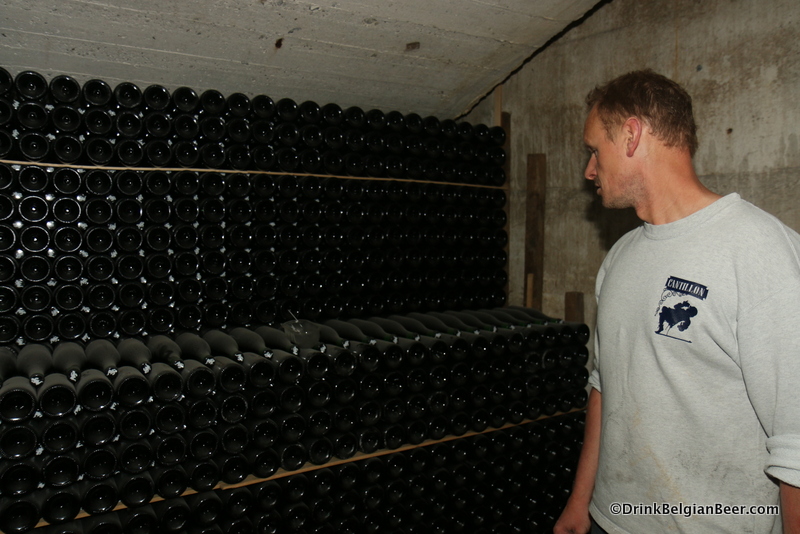
Will the general public ever be able to visit this cellar? “So far, there have only been about twenty or thirty people that have visited here. That’s not because we want to keep it a secret, but really, it’s a time issue for me. We are very busy at the brewery all the time, and so don’t have time to give visits here. But, the good news is that the city is considering organizing some events here. Maybe parties, receptions, and the like. Probably some barrels we be put here, with Cantillon glasses of course, so gueuze tastings can be done during these events,” Jean commented.
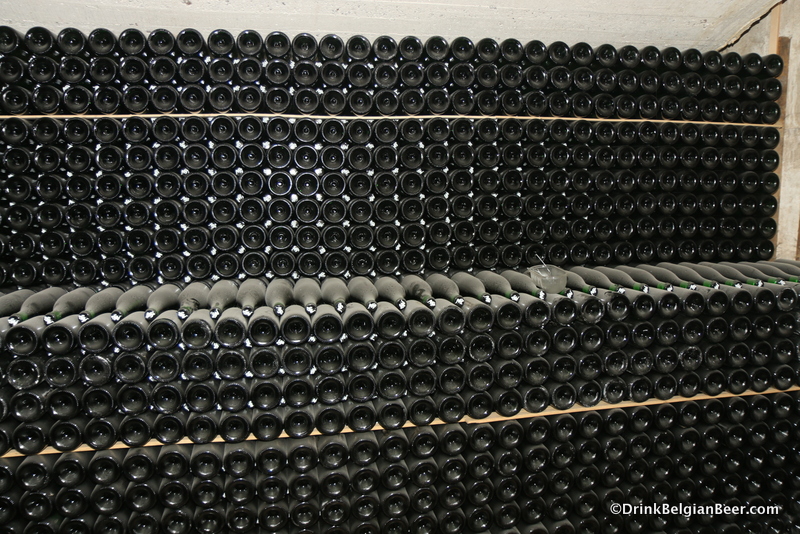
While these cellars are not as big as the great hall at Rodenbach, where wedding receptions are often held, I could envision beer lovers possibly being able to hold a wedding reception there, if the city does begin organizing such events.
Jean then added his philosophy of the project: “I don’t do this for me, or for Cantillon. I do it for the beer, for lambic, which I think is the most beautiful thing in the world. “
I couldn’t agree more!
To see a short video of Jean discussing the philosophy of the long-term aging project, see here
See the website of Visit Brussels and Wallonia and Brussels Tourism and Flanders Tourism
See below for more photos of the Bomb Shelter Beer Cellar.
If you like this website, please like our Facebook page here
and our Twitter page here

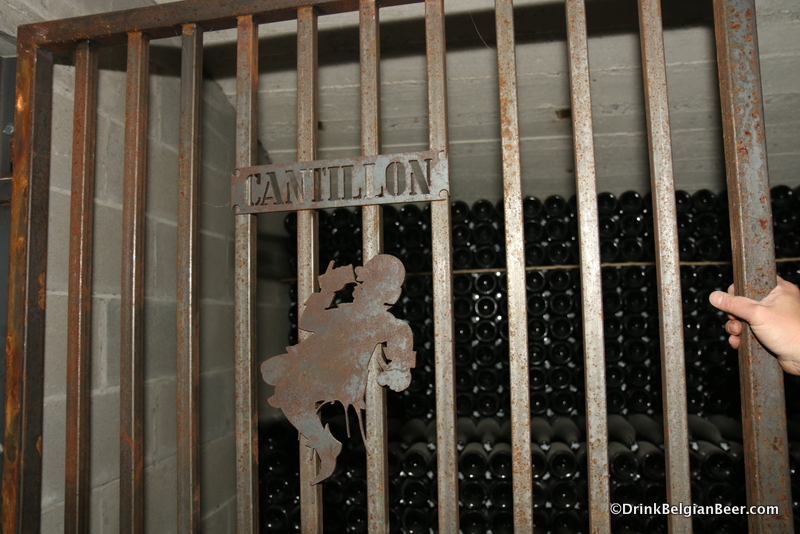
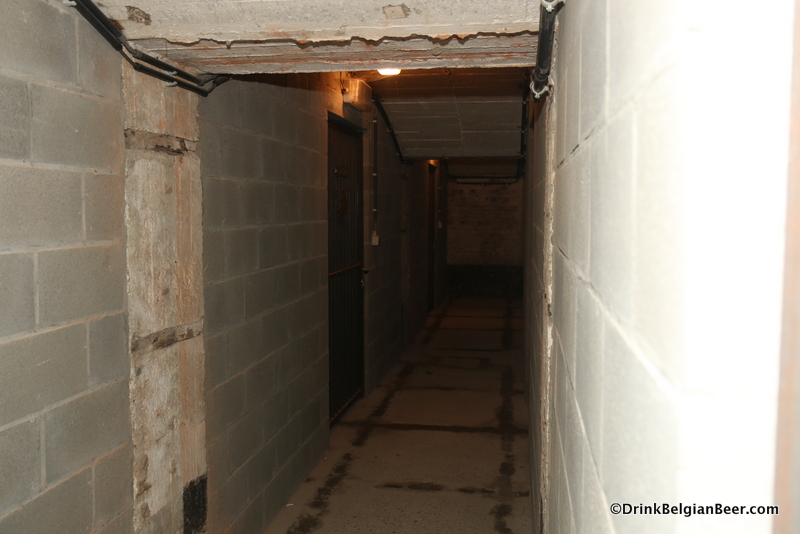
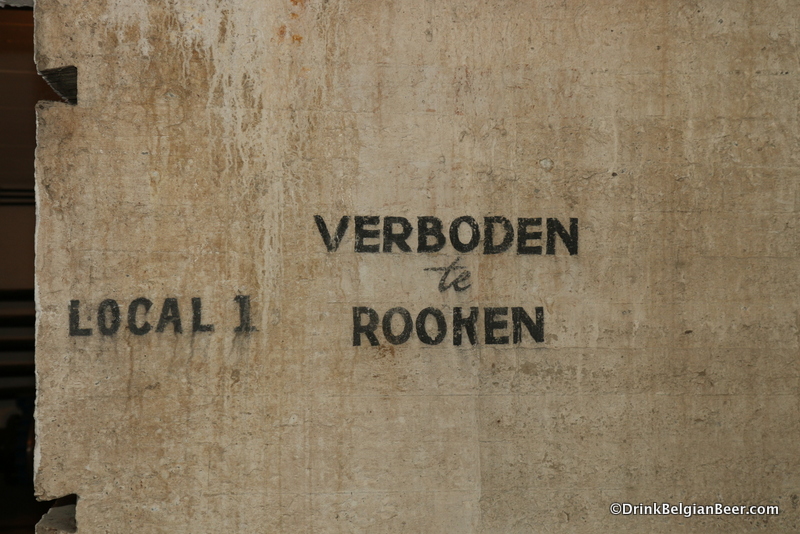
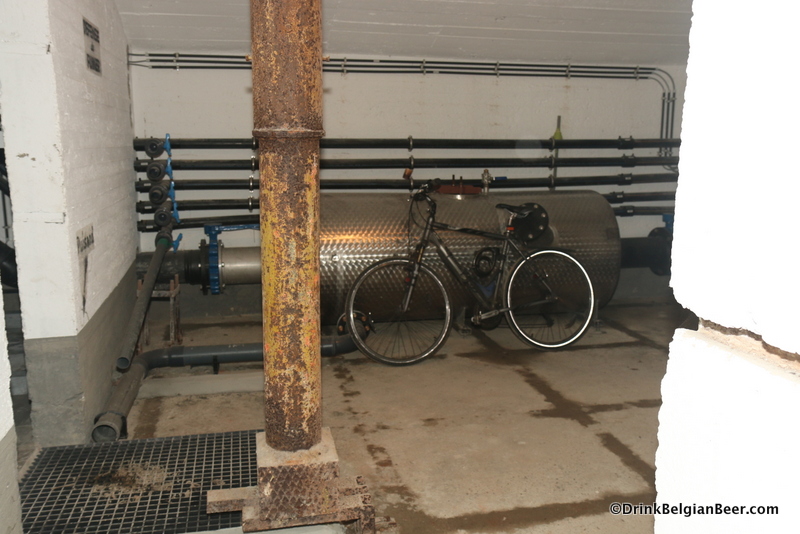
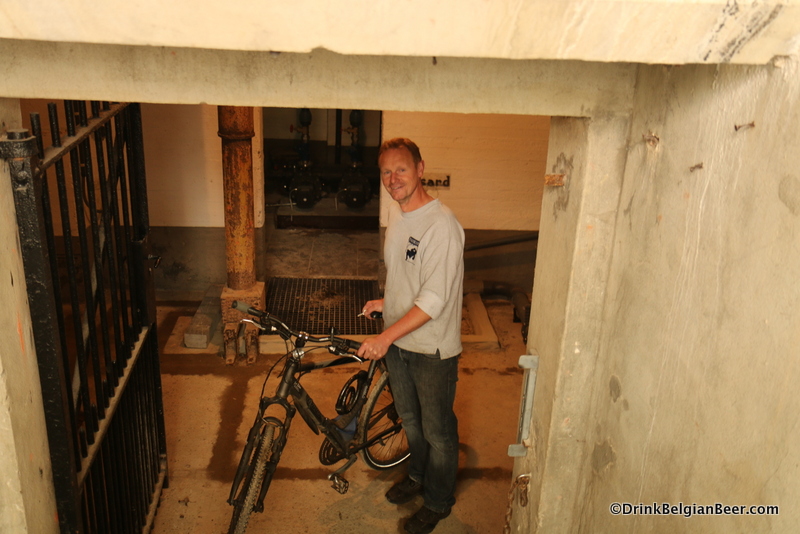
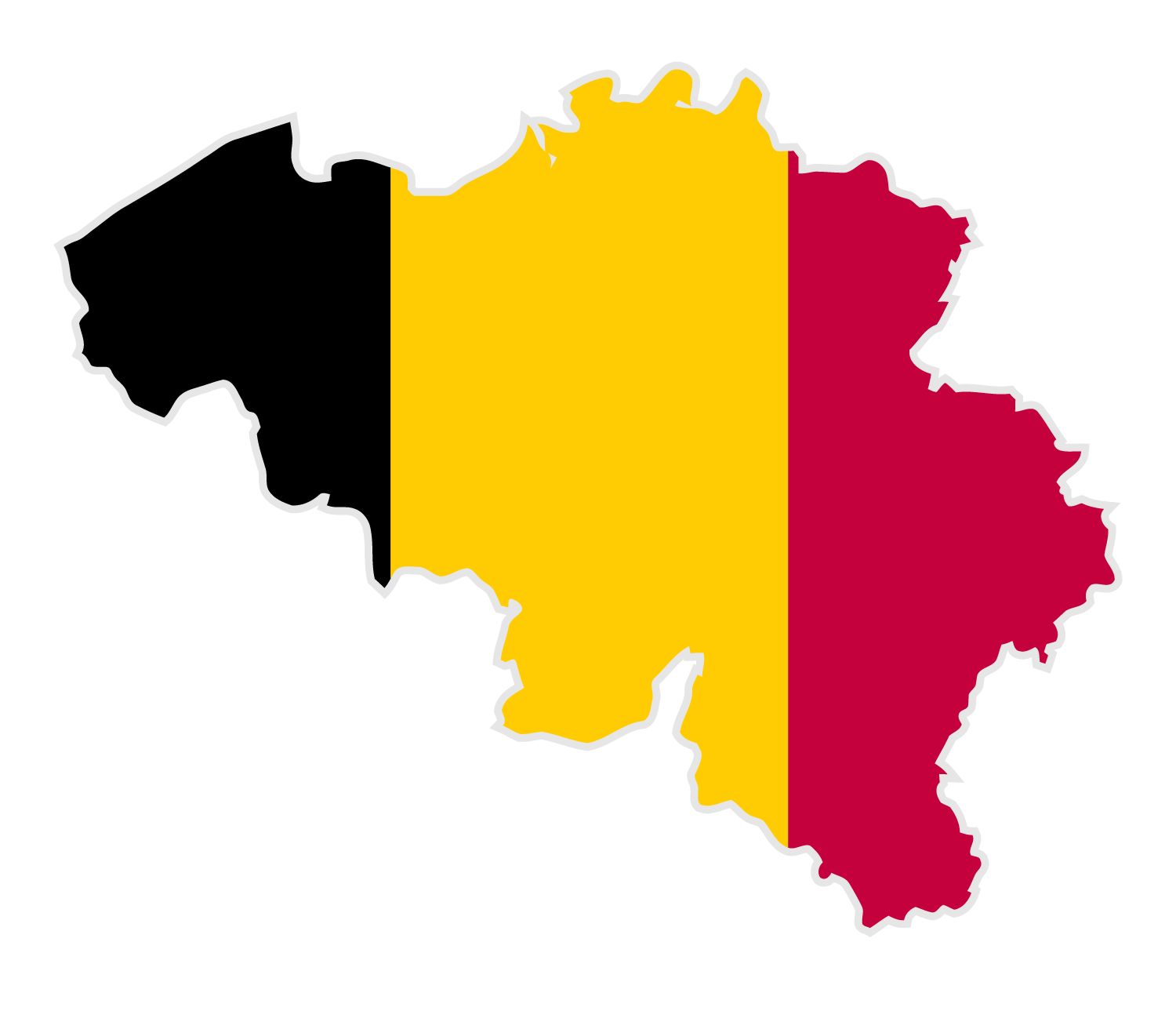
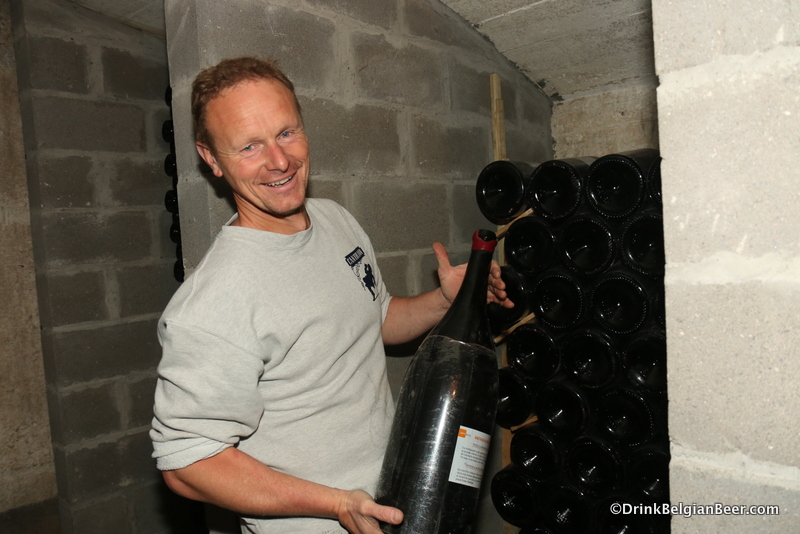
Leave a Reply